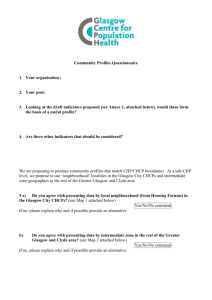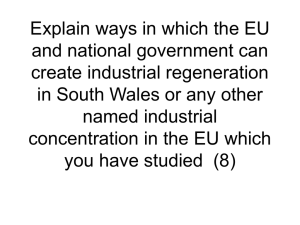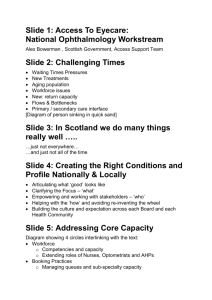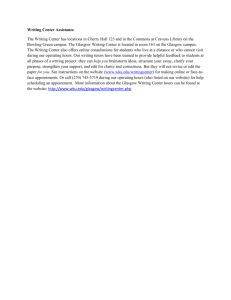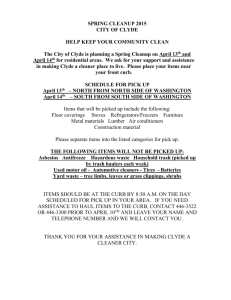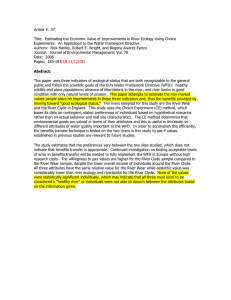River Clyde shipbuilding industry
advertisement
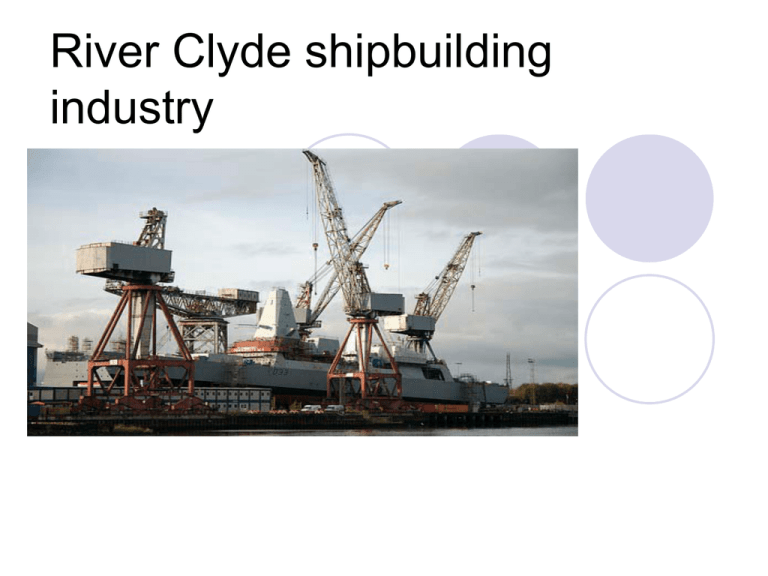
River Clyde shipbuilding industry Learning Intentions 1. To understand the growth of industry in Glasgow. 2. To explain why these industries declined in popularity. 3. To describe the effects this had on the area. Glasgow’s industries Glasgow and the surrounding area had 4 main industries in the 1800s: Coal mining Iron/Steel making Engineering Shipbuilding Shipbuilding By early 20th century, one fifth of all the ships in the world were made on the River Clyde. Shipbuilding did so well due to the location factors. Location Factors Raw materials such as steel for making ships were located near the River Clyde. Ravenscraig Steel works provided much of this steel. Location Factors There was also many coal mines to give the industry a power source. During the peak shipbuilding industry, there was over 560 coal mines. Location Factors The actual location of Glasgow and its river was also important for its success. The river provided a source of cheap transport. The mouth of the River Clyde allowed for a direct trading route between Scotland and America. This encouraged more industry to locate in the Glasgow area. Dredging the Clyde Ship building was big business along the River Clyde, and shipyards were common in Govan and Partick. The river had to be deepened and widened (dredging) to allow ships to sail. This allowed manufacturing industries to transport products out of Glasgow, including 50,000 locomotives. 30,000 ships were built on the Clyde in the 19th and 20th centuries. This Industrial Success was not to last. We need to know WHY! Industrial Decline In the 1900s industry started to close down. Reasons included: Raw materials such as coal was running out. Competition from other countries meant Glasgow’s shipbuilding industry could not compete. This had several effects: Social - to do with ‘people’ Unemployment leads to low standard of living. Families can argue and break up. Crime and vandalism increase as people need money. Younger people may move away to find work. Economic - to do with ‘money’ People have less money to spend. Local shops, garages suffer as people can’t spend money. The council receives less taxes, so can’t spend money on improving the area. Environmental-to do with ‘surroundings’ As everything closes down the area becomes derelict and an eye-sore. The area becomes ugly. Railways, canals, and factories are left unused. Buildings look dirty.
